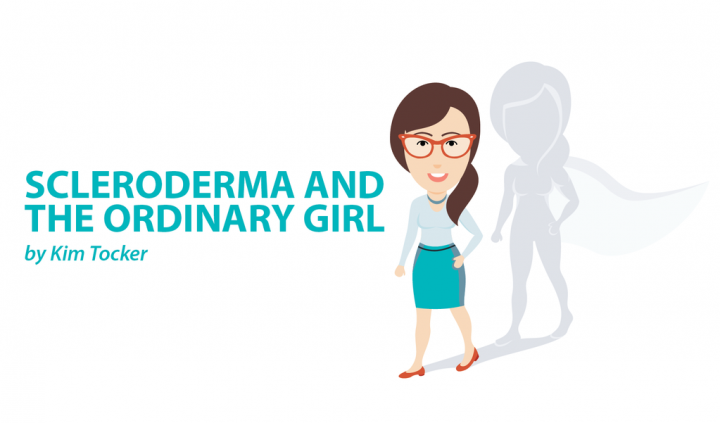My Trauma-related Scleroderma Puzzle: How Does It Fit Together?
Written by |


Burnout is often used to describe what can happen to those living with constant stress, resulting in complete physical, emotional, and spiritual exhaustion. A person can become chronically anxious, fatigued, angry, depressed, detached, and cynical.
Interestingly, I notice that I feel all of these things when I am around people too much, although I suspect that my definition of “too much” is different than that of others.
A single social outing during the day leaves me exhausted. This could be a trip to my hairdresser, a consultation at the hospital, or hanging out with my best friend. I don’t have the energy to be around others; I just want to curl up alone on my recliner. Despite being careful about my boundaries and self-care, I am clearly experiencing “people-exhaustion burnout.”
I used to work with clients experiencing burnout when I was a therapist, so I know the signs. I have learned that trauma often is behind chronic stress and consequent burnout.
The theory that trauma may contribute to the onset of autoimmune disease has been bandied around in scientific fields for some time. I’ve often wondered about the role trauma has played in my life over the years and how it is linked to my disease.
I had a serious traumatic experience in my late 20s. When I was in my 40s, about three years before my diagnosis, my hometown of Christchurch, New Zealand, was struck by two major earthquakes in which 185 people lost their lives and thousands were injured. Over the next three to four years, I worked with many traumatized children and adults.
I believe that repeatedly listening to others’ experiences of earthquake trauma and the associated grief and loss may have re-traumatized me. Counselors were in short supply, and of the few who were available, many lacked specialist training in trauma. Thankfully, I was trained.
At the time, the agency I worked with was inundated with families desperately seeking help. After two years of trying my best to assist people, I realized I had become unwell. A year after that realization, I received my official diagnosis of systemic scleroderma.
The most stressful part of this for me was the never-ending stream of traumatized people coming to my door looking for relief. The responsibility became overwhelming and my health continued to decline. Going into private practice helped a little, but looking back, I was already on a runaway train heading toward a total shutdown.
So, did the trauma of working with such broken people lead to my scleroderma? Or was the disease already present and my work-related stress merely the catalyst that brought it to the fore? It’s the age-old “chicken or egg” conundrum.
I don’t know the answer, but I do recognize that being around people for frequent and lengthy periods will cause a flare-up that forces me into hibernation behind my four safe walls, often for days and sometimes weeks.
Despite this, I try my best. I continue to write and contribute toward scleroderma awareness from the safety of my lounge, tucked into my recliner, and alone.
This week, I am sending out a special “thank you” to my dear friends who always understand, don’t take it personally, and continue to love me when I drop off the planet for a time while I gather myself again. Your understanding means so much to me. I love and appreciate you all.
***
Note: Scleroderma News is strictly a news and information website about the disease. It does not provide medical advice, diagnosis, or treatment. This content is not intended to be a substitute for professional medical advice, diagnosis, or treatment. Always seek the advice of your physician or other qualified health provider with any questions you may have regarding a medical condition. Never disregard professional medical advice or delay in seeking it because of something you have read on this website. The opinions expressed in this column are not those of Scleroderma News or its parent company, Bionews Services, and are intended to spark discussion about issues pertaining to scleroderma.






Bonnie
This is interesting to me because I had an extremely traumatic childhood (from birth to 4 1/2), and when I was 5, I was diagnosed with morphea - the non-systemic type of scleroderma. It was considered very rare although rather benign in children when I was diagnosed back then. As I've aged, I've begun to deal with rather severe Raynaud's Syndrome which probably seems as though it's just an "irritation" to some, but I find it very limiting in cold weather and air conditioning. For the last few years, I've wondered about the timing of my initial diagnosis and whether in some unconscious way, it was my little girl way of saying, "I can't do this anymore by myself" once I was adopted. Thanks for your writing. It's important to me, even though I have the "lesser" diagnosis.
BL
I have spoke with people who have Scleroderma treeating alternatively and all have said infections were the cause. Systemic Candida, Mycoplasma, Clamydia and another got from breat implants leaking.
Marilee NiEtain
Thank you so much for sharing this, Kim. I am also a rapidly retiring therapist who has dealt with more than a fair share of my own trauma and decades of work in the mental health field. I have also struggled with elusive syndrome upon syndrome, flare upon flare, remission upon remission for nearly 60 years now. My physicians have recently begun the dot connection that is getting closer and closer to a possible diagnosis of Systemic Sclerosis Sine Scleroderma with possible overlap. Way too early to tell, of course. But it is sure sounding about right. Thankfully, I find solace in my solitude now and do not pass judgment on myself for it. And when I came across your piece here I suddenly do not feel so alone in my aloneness. Thank you again.
Heather Milligan
Hello Kim
I do enjoy your articles.
Our group of around 20 in Southland have previously discussed the effect of trauma and Scleroderma. Searching my memory about half felt the onset of Scelroderma was a result of cancer, major ongoing family crisis, having shingles, a car accident and others that I cannot remember. The rest were left thinking about it, but could not think of an event. Might ask again at our next get together.
Christchurch Earthquake survivors would be in the firing line for trauma, you (and others) must have done a very good job counselling them as there is not a huge number of people with Scleroderma in the Christchurch group :-)
Best wishes Heather
Chris Nickerson
I blame my Scleroderma on (a) the high level of traffic pollution in the Central London flat where I lived for 7 years, and (b) intense mental stress due to hard work associated with the completion of my architectural course.